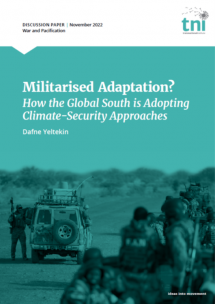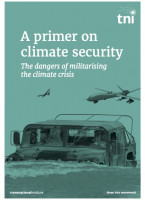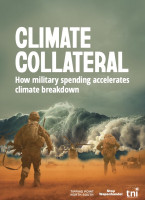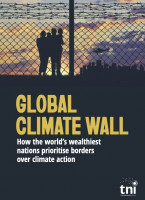Militarised adaptation? How the Global South is adopting climate-security approaches
Regiones
Fecha de publicación:
30
minutos de lectura
Climate change is increasingly treated as a security issue by high income countries with disproportionately high levels of military spending. However there are more low and middle income countries integrating climate security language into their national strategies. This discussion paper explores the implications and the dangers of militarised responses that could further deepen injustice for those most affected by the climate crisis.

Descargas
Militarised adaptation? How the Global South is adopting climate-security approaches
(PDF, 1.04 MB)
Tiempo medio de lectura: 30 minutos*
Autores
Key points
- Climate change is increasingly treated as a security issue in national and international agendas. This approach has been driven by the largest military powers, but low- and middle-income countries (L&MICs) are also starting to integrate the language of ‘climate security’ into their national strategies.
- L&MICs use the language of ‘climate security’ for different purposes and with different meanings: to seek to accelerate climate action, to legitimise their own national military expansion, to justify foreign influence and intervention, and more positively to advance peace-building efforts. The power and resources of the military and security forces means, however, that more militarised approaches often prevail.
- The power of the richest countries also influences climate-security agendas in L&MICs through funded partnerships and agreements, development aid, and climate finance, which results in foreign military initiatives, border militarisation, and the ‘securitisation of development aid’.
- The language of climate security risks increasing militarised responses, further deepening injustice for those most affected by the climate crisis. We need to reimagine ‘security’, by rejecting the prevailing approach that seeks to maintain and manage a system that created climate change and that perceives the victims as potential ‘threats’. We urgently need an approach built on justice that tackles the root causes of climate change.



